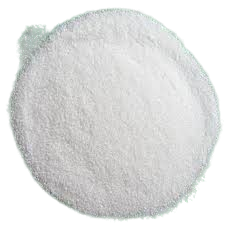Get A Quote
BIS Certification for Zinc Sulphate Heptahydrate (Agricultural Grade) IS 8249

Zinc plays a vital role in improving
crop yields and maintaining soil fertility. One of the most widely used
zinc-based fertilizers is Zinc Sulphate Heptahydrate (Agricultural Grade). To
ensure product quality and safety for agricultural use, the Bureau of Indian
Standards (BIS) has set a specific standard: IS 8249. Manufacturers and
suppliers must comply with this standard to offer their products under the
recognized ISI Mark.
What is BIS Certification for Zinc Sulphate Heptahydrate?
The BIS certification for Zinc
Sulphate Heptahydrate ensures that the product meets the quality and safety
requirements outlined in Indian Standard IS 8249. This certification is
essential for companies aiming to market their product with the ISI Mark for
Zinc Sulphate Heptahydrate, which acts as a symbol of quality assurance and
regulatory compliance.
Under this certification,
manufacturers must adhere to stringent testing protocols related to purity,
solubility, heavy metal content, and other quality parameters critical for
agricultural applications. The certification process involves product testing
in BIS-recognized laboratories, factory inspections, and ongoing quality
audits.
Why is ISI Mark Certification Important for Zinc Sulphate Heptahydrate?
The ISI Mark certification for Zinc
Sulphate Heptahydrate provides several advantages for manufacturers and
end-users alike:
●Trust and credibility: Products bearing
the ISI Mark are perceived as
reliable and safe by farmers, distributors, and government agencies.
●Compliance with Indian regulations: The
ISI certification for Zinc Sulphate Heptahydrate ensures adherence to the legal
standards set by BIS under IS 8249.
●Market access: In many states and
government procurement programs, the ISI
Mark is mandatory for supplying zinc fertilizers.
●Quality assurance: Continuous quality
checks mandated by BIS guarantee product consistency and performance.
Steps to Obtain ISI Certification for Zinc Sulphate Heptahydrate
Obtaining BIS certification for Zinc
Sulphate Heptahydrate involves the following steps:
- Application
Submission: Submit the completed application
form with necessary documentation to BIS.
- Document Review: BIS evaluates the submitted documents to verify accuracy and
completeness.
- Factory Inspection: BIS officials conduct on-site inspections to assess
manufacturing processes and quality control systems.
- Sample Testing: Product samples are collected and tested at BIS-approved
laboratories to verify compliance with Indian standards.
- Certification Grant: Upon successful inspection and testing, the BIS issues the certification, allowing the use of the ISI Mark.
Documents Required for BIS Certification
To apply for ISI
Certification for Zinc Sulphate Heptahydrate, manufacturers must provide the
following documents:
● Completed application form
● Detailed manufacturing process
information
● Quality control plans and test
reports
● Factory layout and equipment
details
● Product specifications and
technical details
● Business registration proof
● Declaration of conformity to
Indian standards
Additional documentation may be required based on product specifications and environmental regulations.
BIS ISI Mark Certification Costing And Timeline
To Know The Process in Detail, Please Visit:
Under BIS Registration Products ISI and CRS
Conclusion
Securing ISI certification for Zinc
Sulphate Heptahydrate is not just a regulatory formality; it's a commitment to
delivering quality-assured products to India’s agricultural sector. The ISI
Mark for Zinc Sulphate Heptahydrate stands as a testament to compliance with
the highest national standards, offering confidence to farmers and regulatory
authorities alike.
For manufacturers looking to enhance their brand reputation and market reach, obtaining ISI Mark certification for Zinc Sulphate Heptahydrate under IS 8249 is a critical step towards building trust and ensuring sustained growth in the competitive fertilizer market.
Free Call Back
Latest News & Update
📅 BIS Critical Component List (CCL) Updates for Solar PV Modules
🕒 BIS Fee Concessions for MSMEs and Startups | EVTL India
📅 Guidelines for Implementation of Essential Requirements for Security of CCTV
🕒 Omnibus Technical Regulation (OTR) Amendment Order, 2025
🕒 Extension of Timeline for Filing Annual Returns by Battery Producers
📅 Extension of Timeline for Filing Quarterly and Annual Returns for E-Waste
🕒 Extension of Concurrent Running Period for IS 302-1: 2008 and IS 302 (Part 1): 2024
🕒 BIS Guidelines for Grant of Licence (GoL) | EVTL India
📅 CPCB Guidance on filing of Application, Fees and more
🕒 CPCB Notification on Labelling of Plastic Packaging
📅 Mandatory Compliance for Input Materials of Steel and Steel Products for Imports
🕒 BIS Guidelines for Scheme-X Certification for OTR-Regulated Products
📅 BIS Upgrades Product Certification License Numbers to 10-Digit Series
🕒 BIS Certification No Longer Mandatory for 14 Chemical & Polymer Categories
Why Choose EVTL INDIA
Expertise in Indian Regulatory Standards
End-to-End Support
Trusted by Top Indian & Global Brands
Fast Processing & Transparent Pricing
Strong Liaison with Indian Authorities
Company Profile














